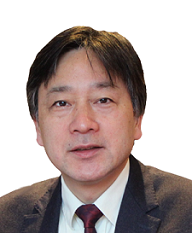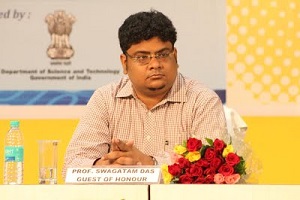
|
|
|
Keynote speakers
Keynote 1 : Data-driven surrogate-assisted evolutionary optimization of expensive problems Prof. Yaochu Jin (Univ. Surrey, UK)
Abstract : This talk discusses the main ideas and methodologies for data-driven surrogate-assisted evolutionary optimization. Fundamental issues such as surrogate model selection, surrogate model management and model training using advanced machine learning techniques in single and multi- and many-objective optimization will be discussed. Challenges and recent advances in surrogate-assisted optimization of high-dimensional expensive optimization problems will be presented. Finally, a few real-world examples will be given. Biography: Yaochu Jin received the B.Sc., M.Sc., and Ph.D. degrees from Zhejiang University, Hangzhou, China, in 1988, 1991, and 1996 respectively, and the Dr.-Ing. degree from Ruhr University Bochum, Germany, in 2001. He is a Professor in Computational Intelligence, Department of Computer Science, University of Surrey, Guildford, U.K., where he heads the Nature Inspired Computing and Engineering Group. He is also a Finland Distinguished Professor and a Changjiang Scholar. His main research interests include evolutionary computation, machine learning, computational neuroscience, and evolutionary developmental systems. He has published over 200 journal and conference papers and has been granted eight US/EU/Japan patents. Dr Jin is the Editor-in-Chief of the IEEE TRANSACTIONS ON COGNITIVE AND DEVELOPMENTAL SYSTEMS, and Co-Editor-in-Chief of Complex & Intelligent Systems. He is an IEEE Distinguished Lecturer (2017-2019, 2013-2015) and was the Vice President for Technical Activities of the IEEE Computational Intelligence Society (2014-2015). He is the recipient of the 2018 “IEEE Transactions on Evolutionary Computation Outstanding Paper Award”, the 2014 and 2016 “IEEE Computational Intelligence Magazine Outstanding Paper Award”, the 2010 IEEE CIBCB “Best Paper Award”, the 2007 IEEE FOCI, and the 2017 IEEE CEC “Best Student Paper Award”. He is a Fellow of IEEE.
Keynote 2 : Multi-scale and Non-stationary Optimization with Differential Evolution Prof. Swagatam Das (ISI Kolkata, India)
Abstract: Differential Evolution (DE) is arguably one of the most powerful stochastic real-parameter optimization algorithms of current interest. DE operates through similar computational steps as employed by a standard Evolutionary Algorithm (EA). However, unlike traditional EAs, the DE variants perturb the current-generation population members with the scaled differences of distinct population members. Therefore, no separate probability distribution has to be used for generating the offspring. Since its inception in 1995, DE has drawn the attention of many researchers all over the world resulting in a lot of variants of the basic algorithm with improved performance. This talk will begin with a brief but comprehensive overview of the basic concepts related to DE, its algorithmic components and control parameters. It will subsequently discuss some of the significant algorithmic variants of DE for bound-constrained single-objective optimization in medium to high-dimensional search spaces. The talk will then focus on some interesting DE variants with additional mechanisms like a distance-based selection, a clustering procedure and aging mechanisms for optimization of objective functions corrupted with additive noise from various sources (with various probability distributions) and also optimization over dynamic fitness landscapes where the optima can shift with time. The talk will finally discuss a few interesting applications of DE and highlight a few open research problems. Tutorial : The synergy between metaheuristics and machine learning Prof. El-Ghazali Talbi (University of Lille, France) |



